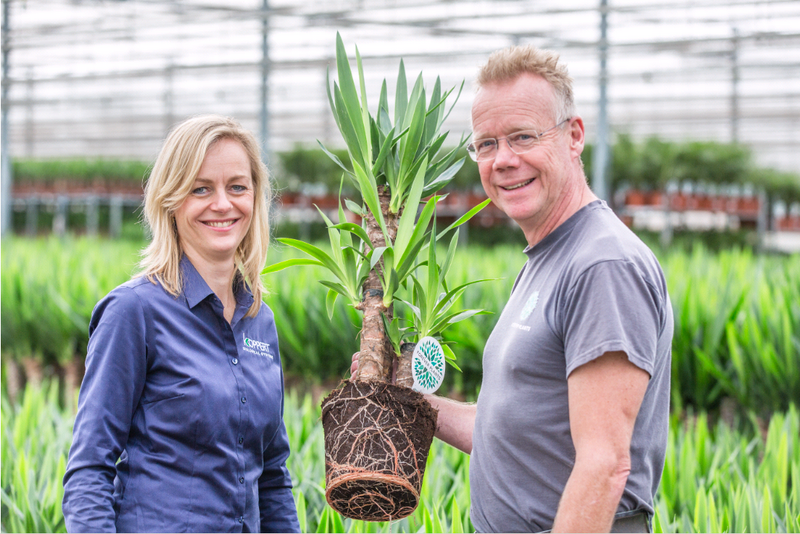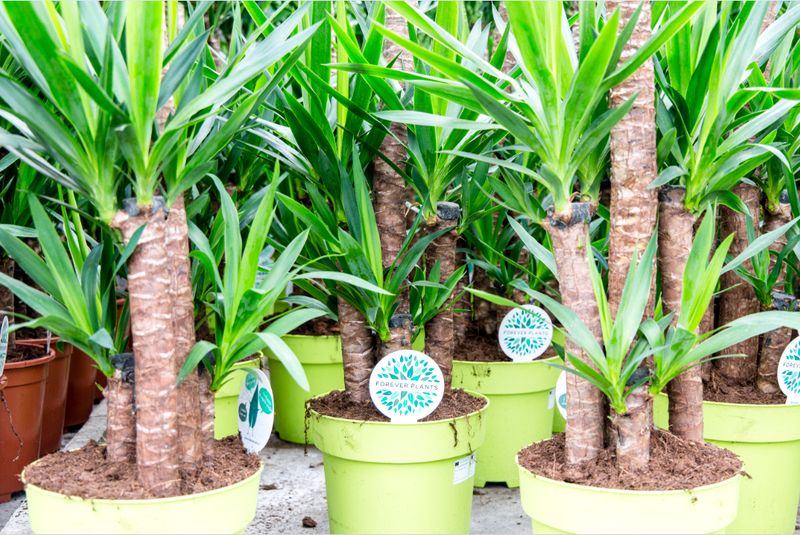
Twenty years ago, Forever Plants was one of the first potted plant producers in the Netherlands to switch to integrated plant protection. The grower has experienced first-hand how having the right approach is an important key to success. And in 2020, it is also essential that the entire chain is sustainable and cooperates. ‘All the links must begin to feel the urgency.’
That the end product is made by the entire chain makes perfect sense to Mart van Holsteijn. If your aim is to improve the end product and strengthen your competitive position, all the links in the chain must look to cooperate and share information. And there’s room for improvement as far as that’s concerned.
Mart has been a cultivation manager for many years at Forever Plants, the four-hectare potted plant farm of the Persoon families in the west of the Netherlands. Around the year 2000, the farm joined the ‘Telen met Toekomst’ (‘Future-proof growing’) project and took part in MPS. ‘Even then, we knew we wouldn’t survive long if we adopted an exclusively chemical approach to managing pests,’ he explains, reflecting on past events. ‘That’s why this farm was one of the first in the potted plant sector to start rolling out Integrated Pest Management (IPM). Ficus is an especially tricky crop to use chemicals on, as pests take over the entire plant. While chemicals could only reach the top of the plant, natural enemies search the whole plant for pests and so had more effect.’
Forever Plants has worked with Koppert Biological Systems from the beginning. ‘Koppert supplied – and continues to supply – beneficials that are better than what any other company is offering, and they also support you. But what really got the ball rolling was their blower: you could suddenly release beneficials faster and more effectively,’ says Mart, explaining his choice.

IPM and Plant Resilience
Forever Plants produces the crops Ficus, Curcuma, Hibiscus, Dracaena, and Yucca. Spider mite, whitefly, and aphids are easy to control in these crops with a combination of biological and chemical corrections. Western flower thrips is a different story, as it always has been. However, since Yucca and Dracaena have been added to our range, the thrips population has increased and is demanding more of our attention.
Forever Plants uses a range of measures to keep thrips under control: gauze in the windows, the nematodes Entonem and Capsanem, the soil-dwelling predatory mite Macro-Mite, and – last but not least – Swirski-Mite.
‘We now also use bio-stimulants on our Yuccas,’ says Mart van Holsteijn. ‘Treatments with the Koppert products Vidi Parva, Vidi Terrum, Fortafol-D, and Vidi Funda in the potting soil, help us boost the crop’s resilience. Together with Koppert, we’ve already established the beneficial effects in trials: a better root system, more vigorous growth, better resilience, and a measurably and substantially lower failure rate.’
Bit of nagging
Forever Plants invested early on in a Walking Plants System, and now the farm is looking for more innovation. ‘Step by step, we want to find the best environment for plants,’ says Mart van Holsteijn.
There are still too many differences in the quality of the starting material, with the quality of the root system in particular showing considerable variation. ‘That’s another weakness in the system. Suppliers generally don’t share enough information, so we regularly do a bit of nagging at them and hope our colleagues will do the same. The links in the supply chain all make the end product and so all have an interest in ensuring an even better end product and a good competitive position. Good, international cooperation is an absolute necessity if we’re going to make that work.’